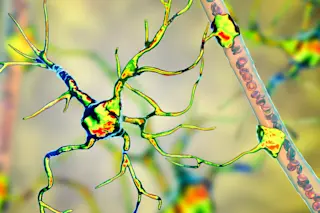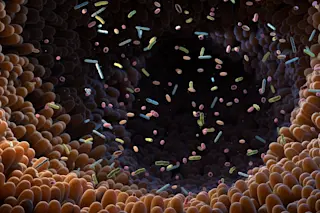At birth, the human immune system is pretty useless; for months newborns rely on immune factors acquired from their mothers while their own infection-fighting systems develop. Or so we thought. Columbia University immunologist Rachel Miller recently found evidence babies have pretty well developed immune systems by the time they’re born.
Miller followed about a hundred pregnant women who came into a clinic for flu shots during their second and third trimesters. After they gave birth, she measured the levels and types of immune cells in both the mothers’ blood and the babies’ umbilical cord blood. She found that 40 percent of the babies produced B cells specific to the flu virus.
To rule out the chance that the cells came directly from the mother, Miller also measured levels of IgM antibodies, markers of B-cell immune response to the flu virus that are too large to have passed through the placenta from the mother to the baby. Her experiment is the first direct demonstration that fetuses can mount their own specific responses to antigens encountered in the womb.
How strong that prenatal punch may be is still unknown. “We showed that babies are born with flu antigen–specific response, but whether that actually provides clinical protection against infection is still unknown,” Miller says.












